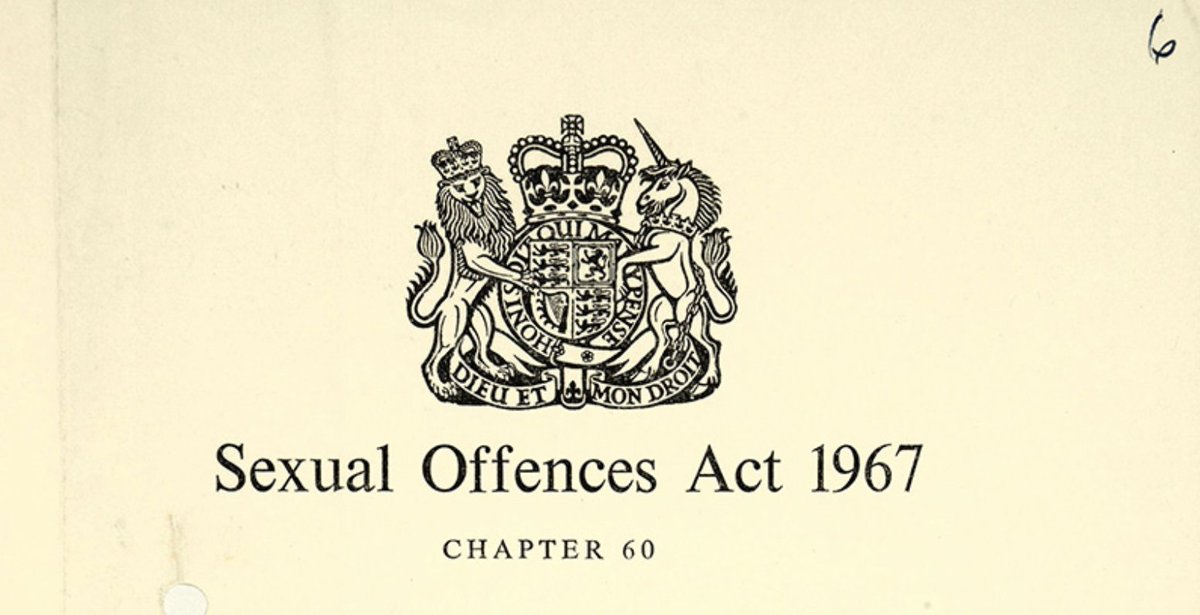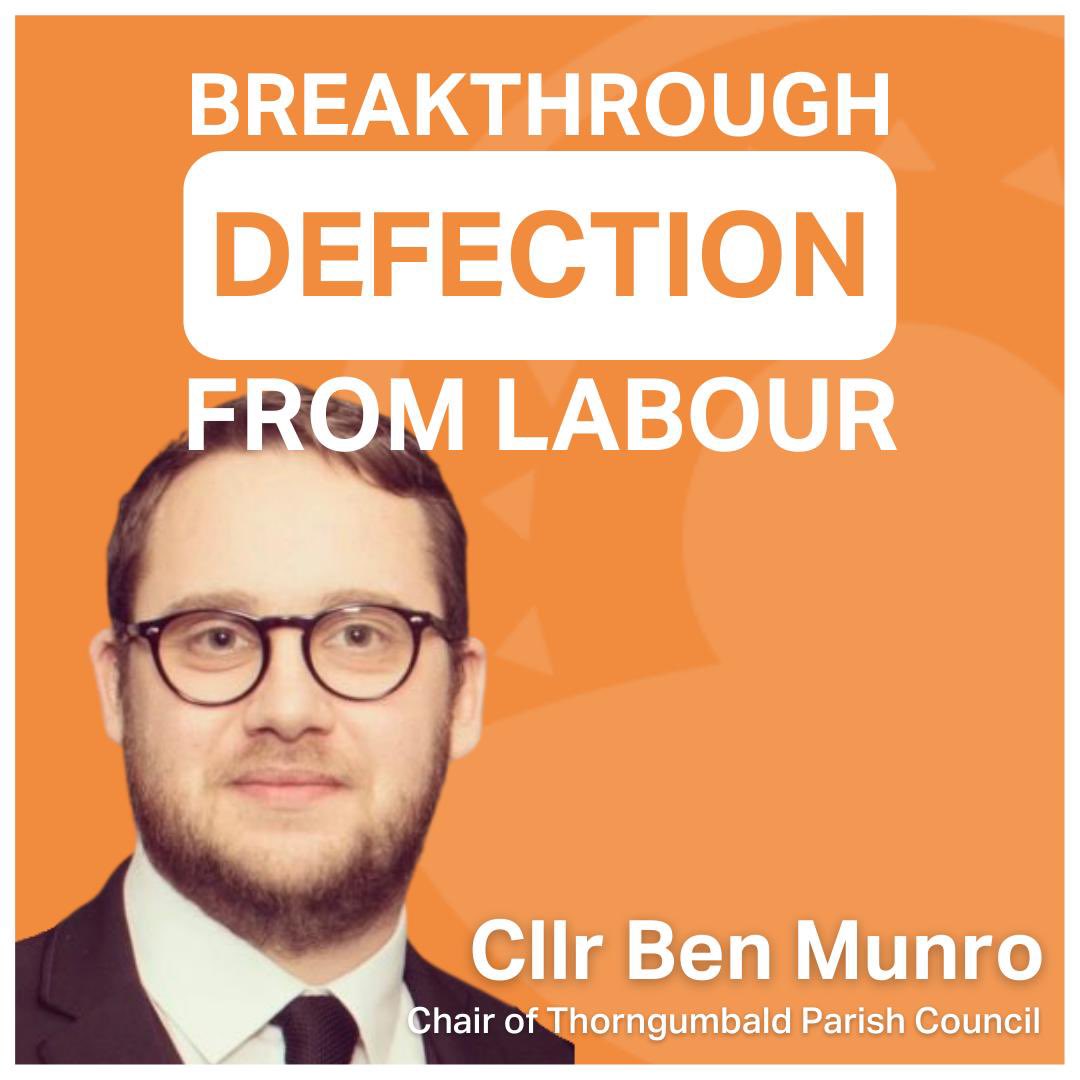
To kick off LGBTQ+ History Month, here's a 🧵 on our legal history in the UK. It all started with...
The Buggery Act in 1533...
The Buggery Act in 1533...

Passed during the reign of King Henry VIII, this act moved the issue of sodomy from the ecclesiastical courts to the state. The Act did not explicitly target homosexual acts between men as it also applied to sodomy between men and women, and acts between a person and an animal. 

However, it was male homosexual convictions that were by far the most common and publicised. Convictions under the Buggery Act were punishable by death. Eventually, the Buggery Act was repealed and replaced by the Offences Against the Person Act 1828.
The new language of the law focused on male same-sex activity explicitly, where the Buggery Act had applied to men and women collectively. Homosexual acts between men remained punishable by death.
The last two men to be executed for homosexual acts were James Pratt and John Smith on 27 November 1835.
In 1861, they introduced the Offences Against the Person Act. This legislation replaced the Offences Against the Person Act 1828, revoking the death penalty for homosexual acts between men and replacing it with a prison term of hard labour between 10 years and life. 

Following the 1866 court case of Hyde v. Hyde and Woodmansee about a polygamous marriage, the legal definition of marriage was set down as being between one man and one woman. The ruling would have lasting implications around arguments for marriage equality for ~150 years later.
Then, as part of the Criminal Law Amendment Act 1885 – commonly known as the Labouchere Amendment – Section 11 was used to prosecute those who committed ‘any acts of gross indecency with male persons’.
In addition, the Act changed the terms of punishment for convictions of gross indecency; the minimum term of hard labour was reduced to two years. The amendment was used to prosecute Oscar Wilde in 1895, who was sent to prison and given two years’ hard labour. 

The Act was also known as 'The Blackmailer's Charter' as it commonly encouraged blackmail against men who engaged in homosexual acts.
In 1921 three MPs attempted to add a clause to a new Criminal Law Amendment Bill that: ‘Any act of gross indecency between female persons shall be a misdemeanour and punishable in the same manner as any such act committed by male persons under the Criminal Law Amendment Act 1885'
Despite agreement from speakers that lesbianism was distasteful and an attack on the ‘fundamental institutions of society’, both Houses rejected the clause, and ultimately the entire bill. There was concern that it would encourage women to explore their sexuality.
After World War II there had been a significant increase in arrests and prosecutions of men under the Criminal Law Amendment Act 1885. The legitimacy of the law was called into question after well-known men such as Alan Turing, were convicted of homosexual offences. 

The Wolfenden Committee released its report in 1957, recommending the decriminalisation of gay sex between consenting adults over 21, except in the armed forces. It stated: ‘homosexual behaviour between consenting adults in private should no longer be a criminal offence.’ 

Despite support from the Archbishop of Canterbury, the Government rejected the report and it wasn’t until 10 years later that the Sexual Offences Act 1967 decriminalised homosexual acts in private between two men, both over the age of 21.
The Sexual Offences Act decriminalised homosexual acts between two men, both over the age of 21, in private. The age of consent was set at 21 (compared to 16 for heterosexuals and lesbians). 

Homosexual acts taking place in the presence of more than two people however, were deemed not ‘in private’ to prevent premises being used for communal activities. The Act only applied to England and Wales.
In the 1950s and 1960s many therapists employed aversion therapy to ‘cure’ male homosexuality. The DSM-II listings were adopted by the World Health Organization and used as a standard worldwide.
By including homosexuality in its list of mental disorders, many gay and bisexual men and women in the UK would suffer humiliating and painful treatments in order to be ‘cured’. The World Health Organisation removed homosexuality from the list of mental disorders in 1992.
The 1980 Criminal Justice Act (Scotland) dictates that sex between two men over the age of 21 ‘in private’ is decriminalised in Scotland. The age of consent for gay and bisexual men is set at 18.
After a complaint was filed with the ECHR; after a gay man was interrogated by the Royal Ulster Constabulary about his sexual activity; the court found that Northern Ireland’s criminalisation of same-sex acts violated the European Convention on Human Rights Article 8.
This was the first case that was decided in favour of LGBTQ rights and as a consequence, male homosexual sex was decriminalised in Northern Ireland the following year.
In 1982, local councils were accused of promoting homosexuality to children at the tax payer’s expense. The argument escalated to the highest levels of government and resulted in the now-infamous Section 28 of the Local Government Act. 

The Act expressly denying local authorities the ability to support its LGBT constituents, funding was withdrawn from arts projects, and resources which ‘prompt[ed] an alternative gay family’ were censored.
Section 28 remained enforceable until 2003. In 2009 Conservative Leader, David Cameron, issued a public apology for it. 

In 1994, an amendment was put forward to lower the age of consent for homosexual acts from 21 to 16, in line with the age for heterosexual acts. The vote was defeated and the gay male age of consent was lowered to 18 instead. The lesbian age of consent was not set.
In 1998, a group of seven gay and bisexual men who were convicted of gross indecency under the Sexual Offences Act 1956 and age of consent offences under the Criminal Justice and Public Order Act 1994.
Despite the Sexual Offences Act 1967 decriminalising gay sex, they were convicted under section 13 of the 1956 Act because more than two men had sex together, which remained illegal.
None of the men received custodial sentences. A high-profile campaign led by gay human rights group OutRage! presented over 400 letters to the court in support of the men, including those from MPs, Bishops and human rights groups.
In 2000, Scottish parliament voted 99 to 17 with two abstentions to abolish Clause 28. Although legislation was introduced to do the same in England and Wales, the Bill was defeated there.
A year later, the UK Government lifts ban on lesbians, gay and bisexual people serving in armed forces. Before this time, gay and lesbian people could not serve in the Armed Forces. They would have to keep their sexual orientation secret, or they could be fired. 

The same year, after three defeats in the House of Lords, the Government forced through legislation lowering the age of consent for gay men to 16. The Scottish parliament voted to adopt this legislation north of the border too.
A year after that, The Adoption and Children Act 2002 allowed gay and lesbian single people, as well as same-sex couples, to adopt a child in the UK. Before this, neither same-sex couples nor unmarried heterosexual couples could adopt or foster children.
In 2003, Section 28 is repealed in England, Wales and Northern Ireland, lifting the ban on local authorities from ‘the teaching in any maintained school of the acceptability of homosexuality’.
This is followed by the Employment Equality (Religion or Belief) Regulations, which meant employers could discriminate against LGBTQ people by not hiring them or promoting them, based on their sexual orientation or gender identity.
Before 2003, LGBTQ people did not have protection from bullying and sometimes were not offered the same benefits as other colleagues, or were unfairly affected at work. This legislation made it illegal to discriminate against lesbians, gay and bisexual people in the workplace.
2004 saw the Civil Partnership Act, This Act was introduced to give same-sex couples the same rights and responsibilities as married heterosexual couples in England, Scotland, Northern Ireland and Wales.
2004 also saw the first Gender Recognition Act, giving trans people full legal recognition in their appropriate gender. It allowed transitioned people to acquire a new birth certificate, although gender options were still limited to ‘male’ or ‘female’.
Same-sex couples were recognised as the legal parents of children conceived through the use of donated sperm, eggs or embryos in 2008, via the Human Fertilisation and Embryology Act.
Then came The Equality Act 2010. It legislates for equal treatment in access to employment as well as private and public services, regardless of age, disability, gender reassignment, marriage and civil partnership, race, religion or belief, sex and sexual orientation.
The Marriage (Same Sex Couples) Act 2013 gave same-sex couples the opportunity to get married just like any other couple. Same-sex couples already in a Civil Partnership could also now convert this to a marriage.
The Policing and Crime Act 2017 pardoned all historic instances of criminal convictions of gross indecency against men. This has become known as the ‘Alan Turing law’. The Act only applies to convictions in England and Wales.
While a lot of progress has been made on LGBTQ+ rights, around the world, our communities are still under attack.
For #LGBTHM23, we must learn from our past and stand strong to make more history! 🏳️🌈🏳️⚧️
For #LGBTHM23, we must learn from our past and stand strong to make more history! 🏳️🌈🏳️⚧️

• • •
Missing some Tweet in this thread? You can try to
force a refresh





